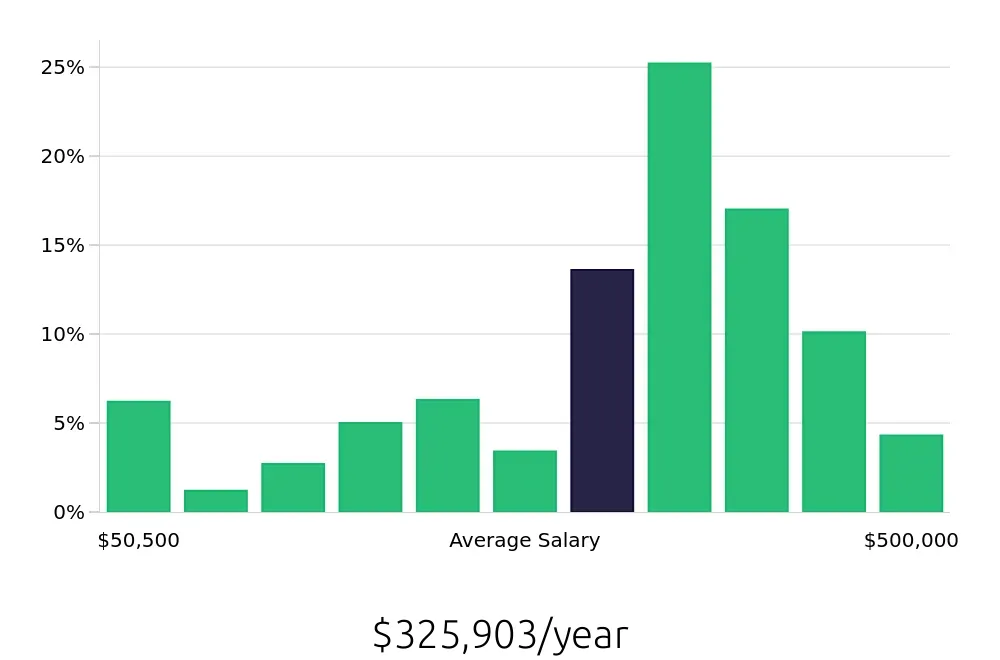Position
Overview
An orthodontist specializes in correcting teeth and jaw alignment. This dental professional uses braces, retainers, and other appliances to improve a patient's bite and align teeth. Orthodontists start by examining the teeth and jaw, taking X-rays, and creating models of the mouth. They then create a treatment plan to move teeth into the correct position.
Orthodontists work with patients of all ages. They often see children, but many adults seek their services as well. Treatment can take months or years, depending on the case. Orthodontists adjust appliances and monitor progress during check-ups. They aim to achieve a healthy, functional, and attractive smile. With a successful treatment, patients enjoy improved oral health and confidence.
Becoming an orthodontist requires dedication and hard work. It is a rewarding career path for those passionate about dental health and correcting misaligned teeth. Here is a clear process to guide professionals through the journey of becoming an orthodontist.
The journey begins with foundational education. Aspiring orthodontists must first complete a bachelor’s degree, focusing on pre-dental courses. This usually takes four years. Next, the individual must attend dental school, which lasts another four years. This education covers a wide range of dental practices and theories. After dental school, candidates need to complete a residency in orthodontics, which typically takes an additional two to three years. This residency provides specialized training in orthodontic care.
Here are five key steps to becoming an orthodontist:
Orthodontics is a specialized field within dentistry, focusing on correcting teeth and jaw alignment. Starting a career in orthodontics requires dedication and a clear path through education and training. First, one must complete a bachelor's degree, which usually takes four years. This degree sets the foundation for future studies in dentistry.
Next, aspiring orthodontists attend dental school, which lasts another four years. During these years, students learn about all aspects of dental care, including orthodontics. After dental school, candidates must complete a residency program in orthodontics. This program typically lasts two to three years. During the residency, orthodontists receive specialized training in aligning teeth and jaws. This comprehensive education ensures they can provide expert care to patients.
We are seeking a skilled and compassionate Orthodontist to join our dental team. The ideal candidate will provide high-quality orthodontic care, diagnose and treat dental malocclusions, and work collaboratively with other dental professionals to ensure comprehensive patient care.
Responsibilities:
Qualifications
Choosing a career as an orthodontist means focusing on helping people achieve better dental health. This specialized field of dentistry involves diagnosing and treating problems with teeth and jaws, such as misaligned teeth. Patients rely on orthodontists to improve their smiles and overall oral health. This career combines medical expertise with helping others feel better about themselves.
Orthodontists work in private practices, hospitals, or clinics. They use tools like braces and retainers to correct issues. They spend much time with patients, making sure treatments go well. This work often leads to rewarding experiences. It allows orthodontists to see the positive changes they help create in people’s lives.
A career as an orthodontist has many benefits, but it also has challenges to think about. Here are some pros and cons:
Job seekers interested in becoming an orthodontist will find a positive outlook in this field. The Bureau of Labor Statistics (BLS) reports around 5,100 job positions for orthodontists each year. This steady demand shows a robust job market for those entering this profession. With an average annual salary of $200,870, orthodontists enjoy a lucrative career. The job outlook from 2022 to 2032 is expected to grow by 4.4%, offering promising opportunities for growth and stability.
The role of an orthodontist is highly valued in the healthcare sector. This position involves diagnosing and treating dental issues related to misaligned teeth and jaws. Orthodontists create treatment plans and use appliances like braces and retainers. This specialized skill set makes orthodontists in high demand. Potential for job openings remains strong due to the continuous need for expert dental care.
The average national compensation for orthodontists also reflects the expertise required for this job. Orthodontists earn an average of $96.57 per hour, according to BLS data. This high hourly rate underscores the value placed on their specialized knowledge and skills. Job seekers can expect not only a stable job market but also rewarding compensation in this field. The combination of job stability and high earnings makes a career as an orthodontist very attractive.
